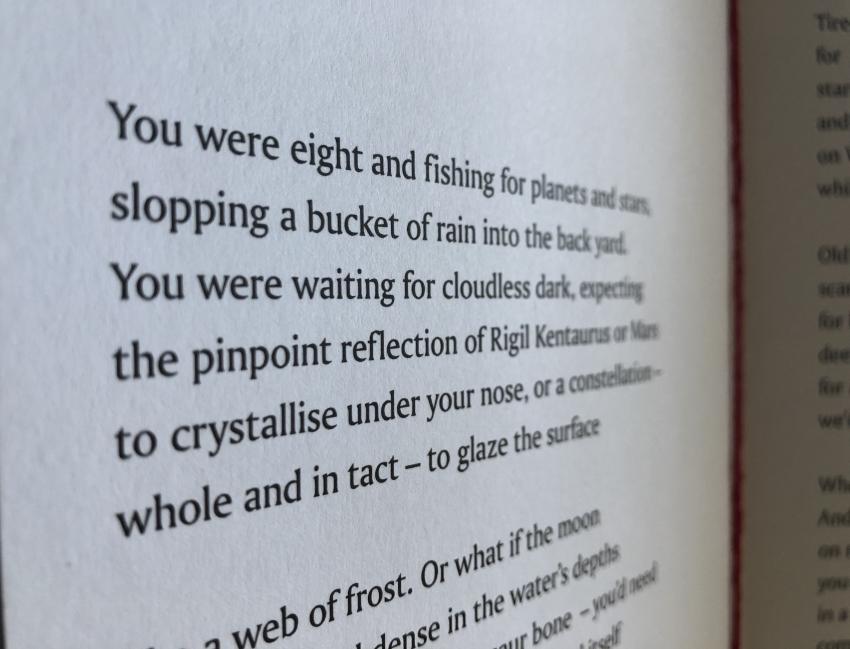The Society approached Simon Armitage, the Poet Laureate, to ask him if he would compose a poem for us to mark our bicentenary year. He kindly agreed. The poem, Astronomy for Beginners, was first read on BBC radio 4's Broadcasting House Programme on Sunday 12th January, the date of our anniversary.
Astronomy for Beginners
You were eight and fishing for planets and stars,
slopping a bucket of rain into the back yard.
You were waiting for cloudless dark, expecting
the pinpoint reflections of Rigil Kentaurus or Mars
to crystallise under your nose, or a constellation –
whole and in tact – to glaze the surface
like a web of frost. Or what if the moon
grew hard and dense in the water’s depths
like some knuckle of dinosaur bone – you’d need
a landing net. But only Polaris proved itself
in the liquid lens, then dissolved
when you lifted it out on your fingertip.
A Russian telescope didn’t help:
some camera obscura inside the tube
flipped the map of the galaxy upside down;
in the peephole eyepiece, families dangled from ceilings
like bats, and sheep hung from green clouds
by their hooves. You were thirty by now.
Tired of the stake-out, tired of panning
for sunspots and fool’s gold you traded
starlight for bird life, birds with their costumes
and songs and shows. Once, in a shoulder of sand
on Windermere’s west shore, a dunnock curtsied
while eating bread from your open hand.
Old brightnesses, old loves. And now you’re
scanning again for omens and signs, apple bobbing
for hyper giants and white dwarves, calling down
deep space onto a blank page, trawling
for angels and black holes with a glass jar, knowing
we’re dying, knowing we’ll never make it that far.
Where did that tin of luminous stickers go?
And the solar system mobile spinning
on near-invisible thread? When she left home
you crashed out on your daughter’s bed and woke
in a Navajo cave, a remote language of light
coming steadily into creation overhead.
Simon Armitage


